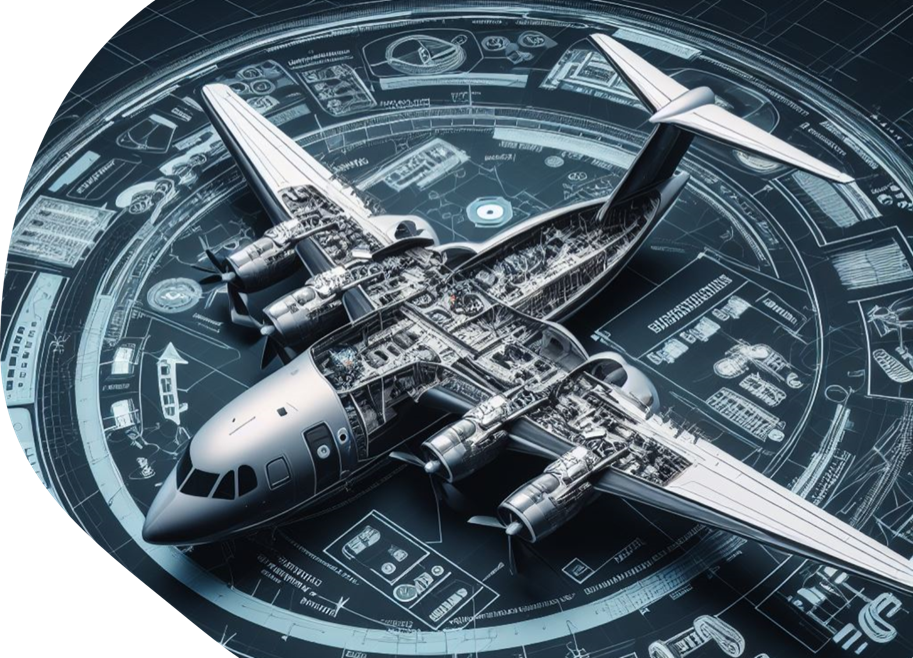NEW - AEROSP 740 - Complex Systems Design & Integration
New graduate-level course offering - Winter 2024
Course Description: This course offers an examination of design methodologies and their application in complex systems, with applications on advanced concepts. It comprises two elements: the theoretical component focuses on the analysis, understanding, and design of complex aerospace vehicle systems and their behavior. The practical component guides students through advanced system design and integration challenges through the sizing and synthesis of a sustainable aviation concept: hybrid electric propulsion aircraft. Additionally, course projects present students with open-ended, real-world problems covering a wide range of sustainable aerospace systems applications to practice their learning.
Course projects: Students will choose one topic area out of a given set of complex system problems for their course project. The topics will vary based on current and new research questions collected from the industry and government. The topics will be revealed during the semester. The problems may include aircraft and space systems. The students will be evaluated on their ability to apply their learnings on real-life systems design, integration, and optimization challenges based on both individual and team performance.
Topics covered: The course will briefly introduce the fundamentals of systems engineering and will go beyond traditional systems engineering approaches by introducing advanced design methods. These methods will include design of experiments, surrogate modeling, machine learning, sensitivity analysis, and decision-making techniques, setting the foundation for advanced topics in complex systems design, integration, and optimization.
The course will cover integration of subsystems (components) to form a complete system, addressing how system-level requirements translate into subsystem design and how subsystems level considerations are brought into system-level analysis. The course will show how to perform system level analysis and select the best-performing system under various constraints, technology levels, and objectives. Practical examples, particularly in the sizing of hybrid electric aircraft, will demonstrate the use of physics-based and data-driven subsystem models within a multidisciplinary framework. Students will learn to integrate these models within an aircraft system and identify key metrics that significantly influence system behavior and performance.
Students will learn to perform design space exploration, trade-off studies, and sensitivity analysis for n-dimensional design spaces, with surrogate models ranging from linear models to artificial neural networks. These models facilitate analyses that would be computationally intensive with multi-physics codes, thereby broadening the scope of system-level studies, and supporting decision making in early-stage design.
Grading: Project checkpoints (reviews), midterm and final presentation and reports; quizzes and/or assignments.
Course outcomes: Upon completion, students will possess a comprehensive understanding of advanced design methods and their application in sustainable aviation, preparing them to contribute effectively to the development of innovative, efficient, and environmentally responsible aerospace systems.
Course requirements:
Software and coding: While the course will provide basic training in select tools for statistical analysis (e.g. JMP) and system integration (e.g. Pacelab SysArc) to serve as an example, use of these tools are not mandatory. Students are also encouraged to develop and utilize their own coding, modeling solutions, or other software to fulfill project needs.
Theoretical background: A background in statistical analysis, aircraft and/or space systems design, and propulsion systems, is advantageous, but not required.
What AI imagines this course to be like (images created by Bing chat):

